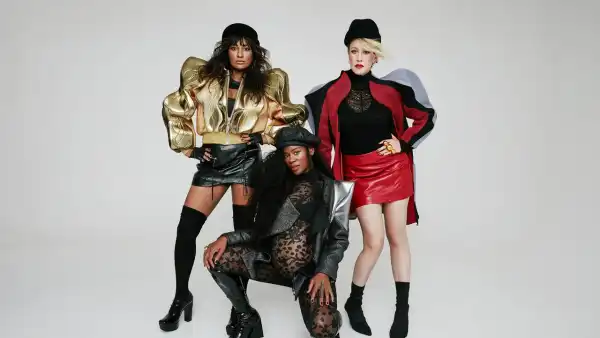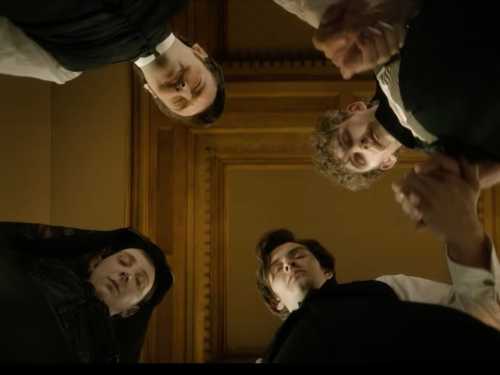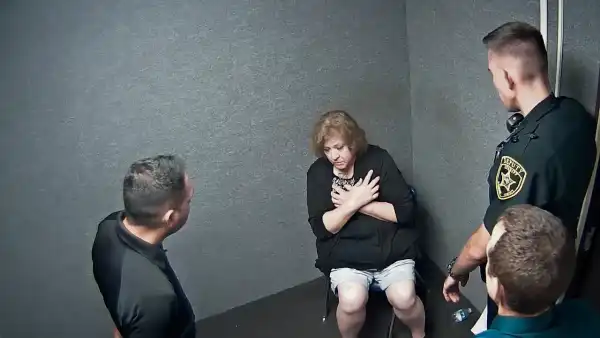
“Paulina, the gardener’s daughter, cares / about flowers doomed to die,” begins Tadeusz Dąbrowski’s poem “Bouquet” (translated, from the Polish, by Antonia Lloyd-Jones). In this brief, poignant lyric, from this year’s first issue of The New Yorker, life and death are intertwined, contained within each other. Paulina places a bunch of flowers “in the hospice // of a vase,” and tends to them as they wilt; “She takes // the dead ones to the compost, from the rest / she forms a new bouquet.” The poem ends, strikingly, with an image that both is and isn’t—an echo, a ghost: “Paulina, / the gardener’s daughter, sees a bouquet in the vase // even when it’s not there anymore.” This final line serves less to contradict Paulina’s perception than to complicate its relationship with reality, to heighten the tension at the heart of truth. Empty, the vase nevertheless blooms with Paulina’s act of imagination, her memory or vision.
Paulina’s bouquet exemplifies, to me, what might be poetry’s most compelling power, what John Keats called “negative capability”—the quality of inhabiting “uncertainties, mysteries, doubts, without any irritable reaching after fact or reason.” Today, in our precarious age of polemic and conspiracy theory, when hateful dogma and disinformation circulate like so much currency, language that lets us embrace ambiguity feels as urgent as ever. The world is not one thing, one way, all the time, yet our infinitely divergent experiences belong to a unified whole; at its best, poetry reminds us of this, proceeding from a place of unknowing and navigating by curiosity, wonder, experimentation—the aim being not to arrive at any single conclusion but to participate in a continuous process of making, and remaking, that particularizes and expands our ideas of what it means to be human.
2022 in Review
New Yorker writers reflect on the year’s highs and lows.

In 2022, The New Yorker published poetry by long-cherished writers, including Charles Simic, Henri Cole, Sandra Cisneros, Jorie Graham, Rae Armantrout, and Joyce Carol Oates, and by several first-time contributors, among them Victoria Chang, Camonghne Felix, Joshua Bennett, Edgar Kunz, and Jaswinder Bolina. Online, we featured boundary-breaking interactive verse sequences by Solmaz Sharif and Robin Coste Lewis. And we printed translations of works originally written in Portuguese, by António Osório (translated by Patricio Ferrari and Susan M. Brown); in Spanish, by Nancy Morejón (translated by Pamela Carmell); in Basque, by Harkaitz Cano (translated by Elizabeth Macklin); and in German, by Meret Oppenheim (translated by Kathleen Heil). Some poems responded directly to, or resonated especially in light of, current events—like Ludmila Khersonsky’s “First Day of War” (translated, from the Russian, by Valzhyna Mort), David Baker’s “Six Notes,” and Lizzie Harris’s “Law of the Body”—while others took inspiration from history and myth. Varied as they are, these poems share a defamiliarizing magic, inviting us to behold the moment’s pain and joy and questions anew, from many angles, with a kaleidoscopic sense of possibility.
A glance at our year in poetry follows; to read and listen to these poems in full, and to find many others, visit The New Yorker’s complete poetry archive.
“Capra Aegagrus Hircus”By Terrance Hayes | January 31st
The goat had no name. Or each of us called it
a different name, but when we draped its horns
in wreathes of fruit and flowers at harvesttime,
we called it Cornucopious the Goat. Dionysus
spent his childhood disguised as a goat
under Zeus’ protection, but he went mad
when he was turned back into a human.
“The Mower”By Jay Fielden | February 7th
There is a grass still
grows that I once mowed,
deep green St. Augustine
I cut in patterned lines.
My father bought this ideal
family plot, a red brick ranch
with plenty of yard and a nice
swimming pool, an unusual coral blue.
“Night Herons”By Amy Gerstler | February 14th & 21st
all day long you wring yourself out
work virtually
go nowhere
brain exclusively tuned
to end-times music
till twilight arrives
to fold you in blue pleats of evening
a flock of night herons flaps past
across the sky or your mind
it’s the same either way
“Alive at the End of the World”By Saeed Jones | March 7th
The End of the World was a nightclub.
Drag queens with machetes and rhinestoned
machine guns guarded the red and impassable
door on Friday nights. Just a look at the crowd,
all dressed up and swaying outside, made people
want to yell the truth about themselves to anyone
who’d listen, but no one heard. The End of the World
was loud.
“Anvil”By Arthur Sze | March 21st
When a black butterfly flits past,
when you glimpse the outlines of apple trees,
when you smell the sprig of sunrise and walk up to the ditch,
when Bering Aleut, Juma, Tuscarora join the list of vanished languages,
when you turn a spigot and irrigate blossoming pear trees,
when the time of your life is a time of earthquakes . . .
“For my light skin”By Toi Derricotte | March 28th
I can only be forgiven by Black people
for the million times I walked down a street
and no one knew I was there—
as if I were tiptoeing,
as if I took my self back from existence.
For the hundreds of times my mother and I
walked the galleries at Hudson’s—
not a dark soul to be found!—
the furniture behind red ropes, untouchable.
“How to Come Out of Lockdown”By Jim Moore | April 4th
Someone will need to forgive me for being
who I am, for sneaking back to my blue chair
by the window, where for the last three hundred and seventy days
I have learned that to be alone is what is good for me. I am pretending
as if I really belong with those who want to return to this world
with open arms, even though it has done to us
what it has done. I wish I could love like that,
instead of wanting to turn my back on it all,
as if life in the world were a marriage
assumed too young and necessarily left behind.
“After My Brother’s Death, I Reflect on the Iliad”By Elisa Gonzalez | April 25th & May 2
You are dead at twenty-two. As I rinse dishes, fumble for my keys, buy kale and radishes,
in my ear Priam repeats, I have kissed the hand of the man who killed my son.
Would I do that? I ask as I pass the store labelled SIGNS SIGNS.
I’ve studied the mug shot of the man who killed you; I can imagine his hands.
Of course I would. Each finger, even.
To hold your body again. And to resurrect you? Who knows what I am capable of.
If I were. Nights, I replay news footage: your blood on asphalt, sheen behind caution tape.
Homer’s similes, I’ve been told, are holes cut in the cloth between the world of war
and another, more peaceful world. On rereading, I find even there, a man kills his neighbor.
“Sundown Walks to the Edge of the Story”By Joy Harjo | May 9th
In this story is a woman with a husband she adores.
He is the color of warm brown earth, tall,
With kind eyes that shine with love for her.
When he loves, it is with every part of his body,
From his planted feet to his head good with numbers.
When she first lay down with him, their love made roots
That dove into the ground, caressed the stones.
These roots find water where water is needed.
“The Mercy Supermarket”By Campbell McGrath | May 23rd
Who’s with me on Biscayne Boulevard tonight?
Who else is in the market for a pint
of papaya juice, a scruple of compassion?
Would it help if we could itemize
every lost or misbegotten soul,
enter every name in a vellum registry?
Would it summarize my life
to list every object
I have touched with these two hands?
“Landscape with Double Bow”By Diane Mehta | May 23rd
You move above and underneath the strings in sea strokes.
One bow was not enough to match the warmth two bows create,
so you invented ways to get more harmony, upper bow and under bow
independent but close, staccato and legato, legato and staccato,
to choose a way to hear the world and harvest sound in it—
curve of bow, curve of earth, curves your eyes interpret as ultraviolet—
Still you want more color, more sound to harvest, more distortion.
“Infancy”By Monica Ferrell | June 6th
The gear in this jaw does nothing.
The muscle in her tongue unlooses only
Raw noise, but the machinery hasn’t broken;
It’s never been used. The baby doesn’t even
Know yet how to sit. She just lies there,
Folded in herself, a scroll whose sutra is written
With still-invisible ink, portent no one can read
About some portion of sun I’ll never see.
—But who smithed you, baby?
“Fracture Story”By Nell Wright | July 4th
Inside me, minerals were mending themselves,
sending collagen threads across
the bad chasm I’d made. From behind a wide cloud slid
stars like flecks of bone, old and glowing.
They held their breaths. When one dashed
across the black, I think I gasped
admiring the platonic plummet: it left
no fallen body. No broken heft.
“Black Frasier Crane”By Rio Cortez | August 1st
As lonely
in her overthinking
and as forgiven
Black Frasier Crane
is a woman in a multi-
generational household
with more than enough
square feet
“Manifest”By Jane Hirshfield | August 15th
To that which is coming, I say,
Here, take what is yours.
But forget, if you can, what-is-coming,
find not worth pocketing,
let fall unnoticed as weed seed,
one small handful of moments and gestures.
Moments mouse-colored, minor.
Gestures disturbing no one,
slipped between the ones that were counted,
the ones in which everything happened.
“Tender”By José Antonio Rodríguez | August 22nd
Thinking of how much my father loved flowering plants
And how much my mother still does.
And of how unfathomably hard it must have been
To clothe and feed ten children
With the most meagre of salaries for tending to citrus orchards—
For shovelling and irrigating and shovelling again.
How he groaned when I removed his work boots
At day’s end, an exhaustion deeper than any well.
“Address”By Jameson Fitzpatrick | September 5th
The other side of the water
makes a figure of me. Who listens,
at dusk, now I can no longer
pretend no one is there.
Who was I when I could?
I was singing.
A love song.
“Roosevelt Dargon”By Andrea Cohen | September 12th
Roosevelt Dargon, how often I have thought of you
and your leg. We were driving that last stretch
of slow road home, in snow and ice, in the blue
Vista Cruiser—what was I, five?—when your big
rig crashed. We didn’t see it happen, but got there
right after, before the ambulance and cops, before
the snarl of cars that would have kept us from
reaching you.
“Thirty-seventh Year”By Charif Shanahan | October 3rd
At the start of this narrative, I will pretend
Not to be alive, not to be
Speaking to you from the living earth.
To help you. I will pretend
The circumstances of our being
Here, together, are casual—
And not incidental
Of this awkward dilemma: How to coexist
When you would like me dead.
For simplicity. For lack of threat.
“True Apothecary”By Natalie Shapero | October 10th
Having been a kid amid the release and reception
of the Alanis Morissette song IRONIC, having absorbed the scoffing
over how some scenarios detailed within
were not in fact IRONIC—this made me shy,
going forward, to term things IRONIC, in case I was getting it wrong—
I even hesitated to attach the label to Romeo
ending his life a mere half hour prior to Juliet waking,
though of course that’s ironic—
“Romantic Poetry”By Diane Seuss | October 17th
Now that the TV is gone and the music
has been hauled away,
it’s just me here, and the muffling silence
a spider wraps around a living morsel.
And at times, often, the unbearable.
I bear it, though, just like you.
Long ago, I bore a suitcase filled with books,
bore it far on city streets. To sell, I guess, at some
used-books place, one of those doorways down
steps into dankness and darkness.
“The Night Nurse”By Emily Fragos | October 24th
The night nurse comes to me with a pill in a tiny cup.
I take the pill from her beautiful hands
and the night nurse takes away my pain, so that I may sleep
without plague of dream or fear of never waking.
The moon is out. The night nurse does not notice.
The night nurse only watches me. I am life and death
to the night nurse. I am more important to the night nurse
than the full pink moon over which the poets obsess.
“Your Card Is the King of Rats”By Martín Espada | November 14th
We were the lawyers from Legal Aid, ready to state our case at the luncheon
of the Bar Association, the white-shoe law firms, the last of the Boston
Brahmins. I would peek in the windows of their townhouses in Louisburg
Square to glimpse the paintings on the walls, their ancestors stiff in oils.
Back at the office, refugees from the land of death squads waited for us
and apologized in Spanish, fingering eviction notices in hieroglyphics.
I looped my pre-looped tie around my neck and walked into lunch with
Jay Rose, the street lawyer I wanted to be, who bewildered landlords
like a chess grandmaster, stoic behind spectacles at the city-park games
of boyhood.
“Hush”By Timothy Donnelly | November 14th
At night the sea’s surface is the penetrable onyx of deep sleep.
I enter it without fear, as if to lower the input of the eye
reduces risk, and whatever I can’t presently see
exists only in memory, which has been calmed by the water’s
cold hypnosis, and to be here is impersonal. Only the moonlight
interrupts this near-nothingness, the play of it on the glossy swell
like a music you can feel, or like the mapping of something happening to me
on another level, something that can be understood so long
as it never finishes—and, when it finishes, there is nothing
left to understand.
“Soul Making”By Robert Pinsky | December 26th
Feigning
Rapt comprehension, I know you the way
An infant pretends amazement each time
The mother with a spoon tip searching
Under the jar’s rim finds more and yet
More of the strained Apricots and Apples:
Infant, the sunflower turns toward her, deep
Egypt of shared attachment and concealment,
Tangy preserved sweetness forging in turn
The courtly generation of—call it a soul.
Sourse: newyorker.com






